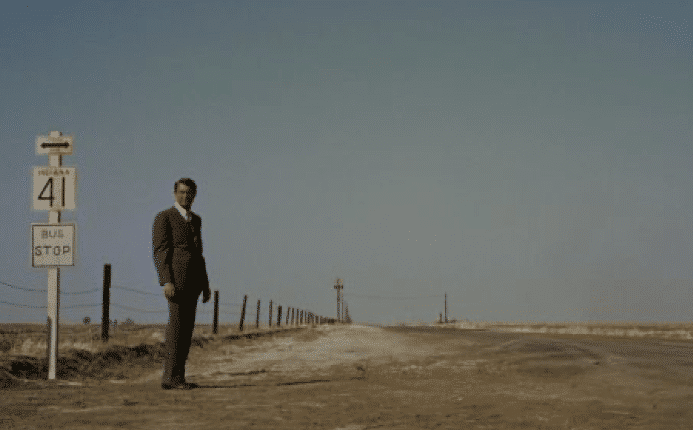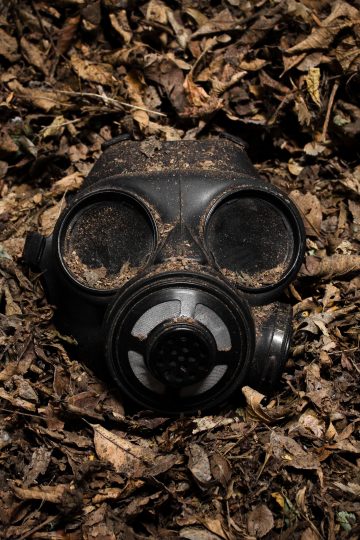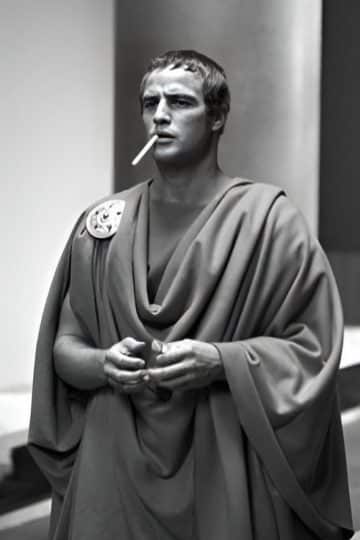Self-Isolation Is Nothing New To Men
Masculinity
Nick Duffell, author, psychotherapist and men's group guru, tells us about a plague which has always affected men.
Plague or Remedy?
It’s a funny time to be singing the praises of men’s groups.
This recommended virus-prevention strategy, self-isolation and social distancing, may work to slow down the current pandemic, but it’s a plague for men – one that we already know all too well. Keeping things inside, living vicariously or having superficial social lives is deadly for us: it is part of our ‘dis-ease’. It makes us defensive and helps us come tops in the suicide figures.
Meeting with other men at depth, connecting physically and sharing your inner life is actually a powerful remedy that mitigates how we men have been brought up, defies some of the myths about masculinity, and is the best detox.
For there is a problem with men: and it’s not who we are, it’s how we have been raised.
Taught over centuries to cut off from our feelings and our inner worlds and to define ourselves by what we are not – not feminine, not soft, not emotional, not weak and so on – sometimes we seem to live a half-life. Unless something happens that encourages us to learn a different way, typically our emotional range stays undeveloped and our relationship skills are usually immature.
Violence, withdrawal or cynicism are some of the all too frequent reactions to experiencing vulnerability or the challenges of love. This is neither our destiny nor our true nature, but it can kick in once we have been inducted into the socialisation process of school and society. Society generally supports the ‘lowest common dominator’ – to use the only maths phrase I can remember from my schooldays –so it’s lazy thinking to take examples of men behaving badly and then swallow the notion that masculinity is toxic. This toxicity is best understood as immaturity or the failure to evolve out of the socialisation process. It’s the notion that’s toxic.
What is true is that men are not taught emotional intelligence and we struggle to find the role-models we need and many of us grow up with inadequate fathering. All of this profoundly affects our sense of our own masculinity, building in distance and a fear of opening up.
Many men today are providing more hands-on fathering, but the social changes of recent years have a downside: many men growing up in a world reconfigured by feminism, struggle to find healthy or attractive models of maleness. They may, in consequence, find themselves stranded in guilt, shame, doubt or unconscious rage; sometimes it results in a kind of grandiosity. Some retreat to defensive male armour and unwitting misogyny; others naively open their chests to the slings and arrows of female anger.
So, once we recognise the problems, how do we heal from these things and find a healthy male evolutionary path?
It’s really hard to ‘do it’ alone.
Therapeutic MensWork can heal the wound
After thirty-three years as a psychotherapist and a men’s group facilitator, I am convinced that working in therapeutic groups is the best re-training for emotional and relational intelligence for men. The facilitated men’s group is more effective for men than individual therapy: our path to maturity and wisdom is different to women’s, and the one-to-one encounter is not the ideal male channel. There is a basic logic to this: since men learn defensive masculinity in groups of men, we can best unlearn it in groups, as a step towards maturity.
The facilitated men’s group is a matrix of learning, longing, struggle, anxiety, courage, of both innocence and wisdom. Once these threads are skilfully choreographed a powerful field makes itself known in which men can undergo transformative experiences.
For example, what men missed in their own fathers they may find in other men, and when this absence and longing is mined in facilitated groups such men can get a chance to ‘re-programme’ their inner emptiness. The American poet Robert Bly brilliantly re-framed men’s anger towards the father as hunger for him. Bly said that if a boy doesn’t feel his father a ‘hole’ inside results, and, because nature abhors a vacuum, into this hole rush ‘demons’. This occurs by the father being ‘out’ at work, but equally when he is at home but emotionally absent. In groupwork, following men’s longing can often lead to resolution.
The group has many other functions, especially in practising emotional intelligence as a rehearsal for intimate relationships and family life. Here the group’s field can have a guiding and corrective capacity, for group members will challenge other men who are not being honest or who are staying superficial, just as you can see in the masterly film, The Work.
Exploring identity issues, practising being present, and learning to ‘open the heart’ promotes better family and work relationships. Learning to healthily self-regulate anger or aggressive irony is something that only a facilitated men’s group can safely achieve. Equally, learning ways of assertion in a nurturing group of men can help find again the root of tenderness, of passion and of a thrusting directionality that some men lack.
Supported by deep therapeutic menswork, men can both challenge the patterns of dominant but defensive masculinity and free themselves from subservience to an idealised feminine principle. Now they can become a force for social change in their own communities and healthy anchors for future generations.
O Brother, who art Thou?
On the street, though, any talk of men getting together in groups risks being turned into a joke, often including tree-hugging. We Brits love our humour – but frequently it’s employed defensively. So, while we need to counterbalance academic over-seriousness about gender, we should remember that our tabloid-inspired opinions are part of the socialisation that doesn’t want us to evolve.
Besides, it’s as old as the hills: the male identity quest goes back in myths and legends to the Greeks. Jude Kelly who organised the first Being a Man Festival, told The Telegraph in 2014:
‘You can’t have half of the population walking about and talking about identity — which is what women and girls have been doing for a very long time — and then not have the other fifty per cent of the world considering their identity.’
Inspired by feminism, men’s groups first took off in the late seventies. Animated by the discovery of indigenous gender initiation processes, large men’s gatherings were a feature of the late 80’s and early 90’s. The central question asked in these groups included:
- What does it mean to be a man, the values of deep masculinity, the images that guide who we become?
- How should we regulate our sexuality and aggression?
- What about our attitudes to women?
- Where is a masculinity to be found that we can willingly identify with?
I was lucky in my day to have the benefit of working with such luminaries as Robert Bly, James Hillman, Michael Meade, Malidoma Some and Martin Prechtel, who all understood the delicate balance between the need to not be ashamed and to evolve as a man.
In the mid-nineties I was able to combine what I had learned with my therapy training to begin running my owned themed programmes for men over long weekends. These events were always very powerful: both participants and staff alike frequently returned home aglow.
Searching for Our Male Heart
Later, I wanted to create something that might outlast the ‘workshop high’– an on-going format to see what could emerge in a group when men really committed to each other over time. In those days, self-run men’s groups were fairly common, but I still thought there was a value to having a facilitator, who can steer men away from giving each other advice, which prevents the emergence of deeper meaning or learning from further experimentation on the problem.
A facilitator can instigate process work in a group – very difficult in a self-run affair. In terms of continuity, I also appreciated how the payments made in therapy represented a way to ring-fence the time and membership as an on-going commitment from which trust is built.
I wanted to experiment with something easily affordable in terms of time and money, so in 2000 I began a group combining facilitation with a regular membership that would meet only four times a year for a longish day. I named it ‘Searching for my Father I found my Self’. Despite infrequent but regular meetings, this format seems to have worked, and I am proud to say that, at the time of writing, twenty years, that original group is still going. Over half the current participants were founder members; we have had one guy die and the group were his pallbearers. A second group started a couple of years later, and we now have four groups, all long-running, with a maximum of 12 participants and three staff members, who meet for supervision at the same quarterly intervals. I have written more about this experiment here.
If a men’s group is to use its full potential it must become a transformative space. Such a matrix means that a creative mix of support, challenge, practice and teaching is called for. This cannot be self-led and therefore requires facilitation. This is best done – as in the past – by ‘elders’, who have walked the path themselves. It is not enough simply to have enthusiasm and right intention: working with any group requires skill, which takes time to learn.
In response to the demand from of our groups, in 2019 we launched a facilitator training, running over three weekend modules in London and one residential in the Ashdown forest. It was an extraordinary event.
Early in 2021, when society will hopefully have remembered how good groups are, we are running it again. If you are interested please contact info@genderpsychology.com
About the author
Nick Duffell has been running men’s groups since 1987. He is a psychotherapy trainer and psychohistorian who co-founded the Centre for Gender Psychology and founded Boarding School Survivors and has two sons and two grandsons. He is the author of The Making of Them and Wounded Leaders and a contributor to the University of Surrey’s Dictionary of Personal Development. He co-authored Sex, Love and the Dangers of Intimacy, Trauma, Abandonment and Privilege and The Simpol Solution: a New Way to Think about Solving the World’s Biggest Problems.

Sign up To the Shut-In Bulletin
Sign up to our daily newsletter with all you need to get through this crisis.
Trending
Masculinity 5 days ago
Sport 1 week ago
Health 1 week ago

Join The Book of Man
Sign up to our daily newsletters to join the frontline of the revolution in masculinity.




















